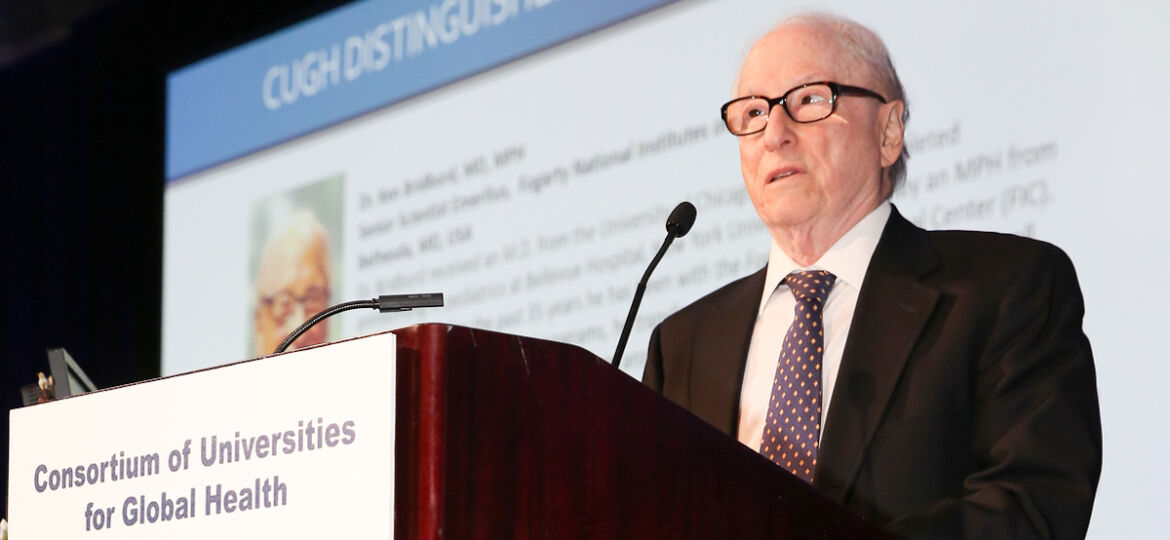
A history of environmental advocacy provides a template for the future
Kenneth Bridbord, MD’69, never expected to end up as one of the public faces of an environmental movement. It was just by chance that the Environmental Protection Agency (EPA) asked their junior physician to participate in the February 1972 press conference announcing the proposal to regulate lead in gasoline. “My boss should’ve been there,” he said with a laugh. “But he was out of town, and I guess I knew enough that I must have impressed him.”
His accidental participation led to years of advocacy and broiling controversy while working for the EPA, during a time when many were reluctant to accept that human activity could have a profound impact on the environment and, as a result, on human health. Bridbord’s view that leaded gasoline was significantly contributing to high rates of lead exposure in the population was actually the minority view. “The prevailing opinion was that the problem was lead in paint,” he explained. “Children who lived in deteriorating housing often had high blood lead levels, but the epidemiology showed that it wasn’t limited to people in deteriorating housing, it was more generalized.”
Others argued that business, not government regulation, should drive a change, as catalytic converters became more common on automobiles. “The problem was that we didn’t know if that technology would be the future for all cars,” said Bridbord. “And in the end, the health regulations did significantly accelerate the removal of lead in gasoline, and as a result, the correlation between decreased lead emissions and a drop in blood lead levels was much clearer — it was almost a perfect correlation.”
Bridbord said the tipping point was the accumulation of scientific evidence. His first study was attacked by the lead industry and decried for its supposed political agenda. It was only after additional studies were released that the public opinion began to shift on the issue.
In many ways, Bridbord can see echoes of his experience in the current struggle to accept and address the impacts of climate change. In particular, when it came to leaded gasoline, “without federal regulation, it never would have happened,” he said. “Regulations are not the whole story, and of course you need people to cooperate, but they are important. You can throw doubt on anything you want — misinformation is so much worse today than ever before, but it’s always been an issue, and industries affected by regulation have always tried to cast doubt on the quality of the data and information. And we can’t rely on individual responsibility, because you will similarly always see pushback. Look at what has happened with COVID-19.”
He said that it is the responsibility of scientists to continue to publish and communicate their research — though it can be difficult to be heard in a sea of misinformation about climate change and public health — and not to let themselves be intimidated even when there is pushback.
“It can be really complicated to explain the relationship between climate change and health,” Bridbord said. “The relationships are multifaceted and multifactored and I’m not an expert on this particular arena. But even if you can convince people to change their individual opinions or how they live their lives — what kinds of cars they drive, whether they take public transit, all sorts of things — you do still need regulation. And the federal government has recently been passing some important legislation. Some people have said that it’s not fast enough, but I think it’s moving in a good direction.”

